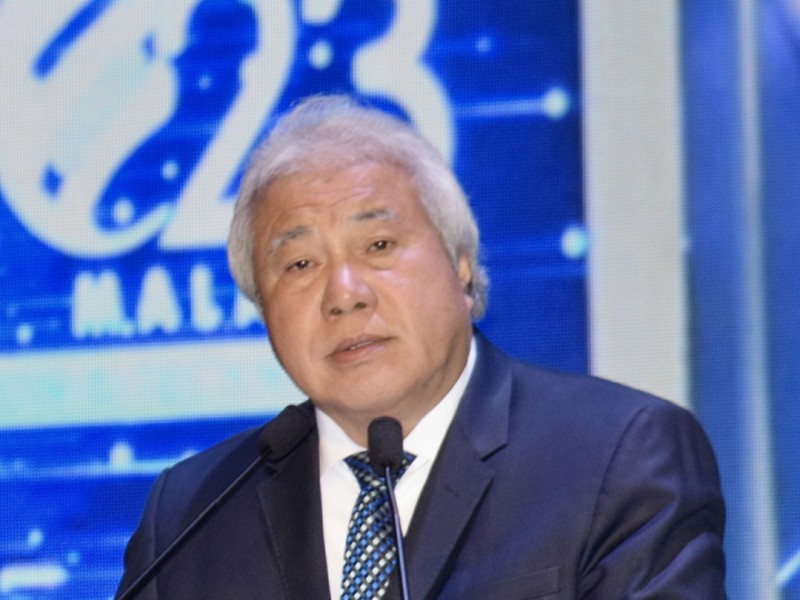
KUCHING, March 3 — Sarawak’s commitment of positioning itself as a regional green energy hub serves as a push for the establishment of robust policies and procedures aimed at reaching and upholding transparency, integrity and good governance.
In stating this, Deputy Premier Datuk Amar Awang Tengah Ali Hasan says the commitment comes with a strong focus on improving the ease of doing business in line with the environmental, social and governance (ESG) principles.
“There is no doubt that green energy sources such as hydropower would become the main driving force towards achieving the Net Zero 2050 aspiration. Indeed, Sarawak has the potential to generate 20,000 MW of hydropower.
“So far, we have developed 5,625 MW (in power generation), with 70 per cent of it deriving from renewable energy sources.
“Our goal is to generate 10,000 MW of energy by 2030, and this will be achieved through hydropower using various methods such as cascading, biomass including wood-pellet and waste-to-energy, as well as solar and wind energy,” he spoke at the closing ceremony of the Bumiputera Economic Congress in Kuala Lumpur last Saturday.
Moreover, he said under the leadership of Premier Datuk Patinggi Tan Sri Abang Johari Tun Openg, Sarawak had succeeded in producing Sustainable Aviation Fuel (SAF) via a pilot project in Kuching.
“So far, we have developed 5,625 MW (in power generation), with 70 per cent of it deriving from renewable energy sources.
“Our goal is to generate 10,000 MW of energy by 2030, and this will be achieved through hydropower using various methods such as cascading, biomass including wood-pellet and waste-to-energy, as well as solar and wind energy,” he spoke at the closing ceremony of the Bumiputera Economic Congress in Kuala Lumpur last Saturday.
Moreover, he said under the leadership of Premier Datuk Patinggi Tan Sri Abang Johari Tun Openg, Sarawak had succeeded in producing Sustainable Aviation Fuel (SAF) via a pilot project in Kuching.
According to Awang Tengah, the focus on SAF would be on developing it commercially to meet the needs of the aviation industry.
“According to the Corporate ESG Report, 50 of the world’s major airlines have set a target of using 11.4 billion litres of SAF per year by 2030.
“Sarawak has also succeeded in producing hydrogen through a plant in Kuching for the use of hydrogen-powered vehicles. Even the Autonomous Rapid Transit (ART) project, currently being implemented, will also use hydrogen.
“We will also produce hydrogen commercially for domestic use and exports through collaboration by SEDC (Sarawak Economic Development Corporation) with companies from South Korea and Japan,” he added.
On the Bumiputera entrepreneurs’ significant role in propelling Sarawak towards its vision to becoming a developed state by 2030, Awang Tengah pointed at the establishment of InvestSarawak as a measure to help these entrepreneurs tap into the ‘green economy’.
He said the fact that the digital economy affected each and every one, including sthe civil servants and the people, providing such assistance was necessary to boost the participation in green economy.
He added: “InvestSarawak has partnered with Alliance Bank Malaysia Berhad and United Nations Global Compact Network Malaysia and Brunei (UNGCMYB) in providing green financing amounting to RM1 billion to SMEs (small-medium enterprises) in Sarawak.
“The ‘New Economy’ involves the latest technology, high expertise and large capital.
“I am confident that Bumiputera entrepreneurs can involve themselves in the ‘New Economy’ and take advantage of it, either by doing it on their own or collaborating with non-Bumiputera entrepreneurs, or with international companies,” he said, while calling upon the government and Bumiputera entrepreneurs to work hand in hand in making sure that Malaysia would prosper.
Source : https://www.malaymail.com/news/malaysia/2024/03/03/sarawaks-green-energy-commitment-a-push-for-creation-of-solid-policies-says-deputy-premier/121233

